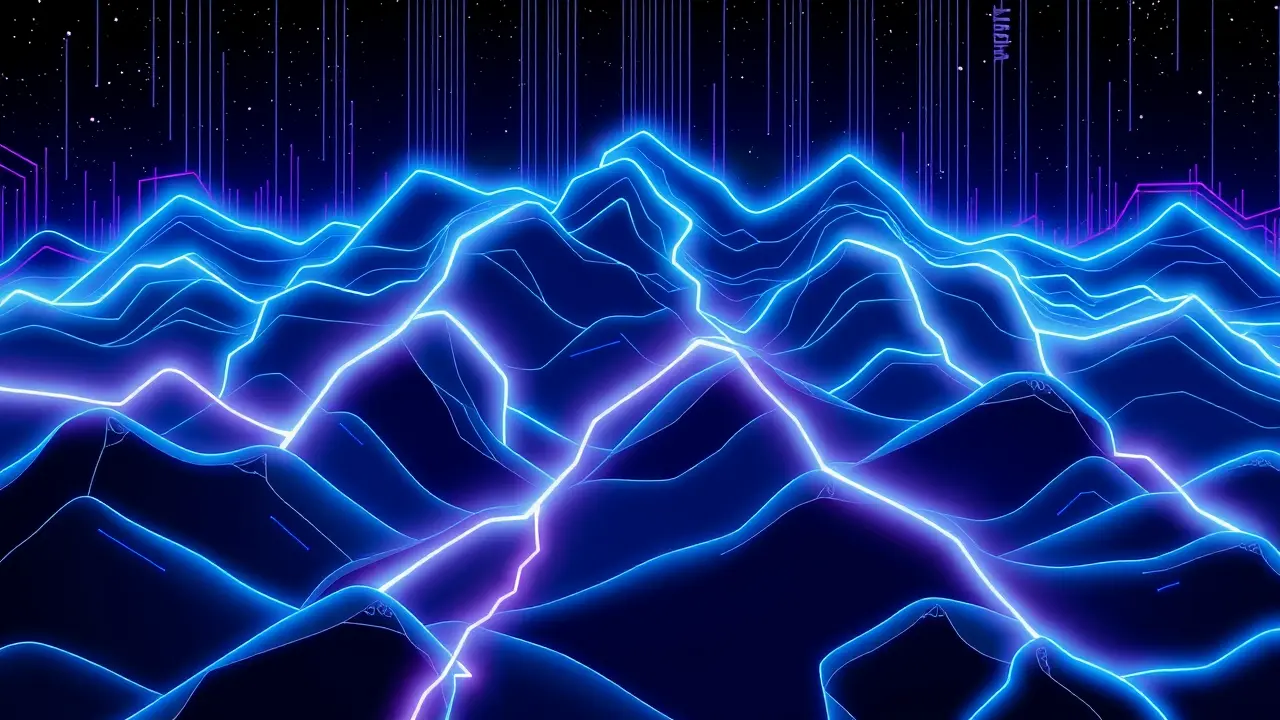A Declaration to Remain in Cyberspace
So, you’re probably hearing a lot of chatter these days about logging off, about the digital detox being the ultimate act of self-care, about how the real world is where it’s at. It’s a fashionable stance, a kind of collective sigh against the noise of notifications and the endless scroll.But then I stumbled upon this manifesto from the summer 2025 issue of VICE, a piece that essentially tells that entire retreat to go touch grass, but in a far more eloquent and defiant way. It’s a declaration to remain in cyberspace, a concept that feels almost nostalgic and radically forward-thinking at the same time.It immediately took me back to John Perry Barlow’s ‘A Declaration of the Independence of Cyberspace,’ delivered to the powers-that-be in Davos nearly three decades ago, where he famously called this new frontier ‘the home of Mind. ’ Remember that? It was a wild, optimistic, almost utopian vision—a place where identities were self-constructed, governance was emergent, and the geography of the physical world held no sway.Barlow was a poet, a visionary, and he saw the internet not as a set of cables and servers, but as a new continent of human consciousness. And this new manifesto seems to be picking up that torch, arguing that to abandon this project now, just because it’s gotten messy, is to surrender the most profound social and intellectual experiment of our time.Think about it: we’re not just talking about social media fatigue here. We’re talking about a fundamental realm of human interaction, creativity, and knowledge.To retreat is to cede ground to the very corporate and state powers Barlow warned us about, to let them have the final say on what this space becomes. The manifesto’s stance is a crucial counter-narrative.It forces us to ask: is the problem cyberspace itself, or is it the particular, often extractive and manipulative, architectures we’ve built within it? The early web, for all its quirks, was a place of discovery—Geocities pages, forum debates that lasted for years, the sheer joy of finding a niche community that shared your most obscure interest. That spirit, that potential for connection and collective intelligence, hasn't vanished; it's just been buried under layers of ad-tech and algorithmic engagement.This isn’t about being a naive optimist. It’s about being a stubborn builder.The challenges are immense: the erosion of privacy, the spread of disinformation, the mental health toll of constant comparison, the way these platforms can amplify our worst instincts. But these are not arguments for leaving; they are arguments for fighting, for coding, for writing, for creating better systems.It’s the difference between fleeing a city because it has crime and poverty, and rolling up your sleeves to participate in its civic life, to vote, to volunteer, to build a better community. The digital natives who have never known a world without the internet understand this intuitively; for them, online and offline are not separate realities but a blended, continuous experience.To tell them to ‘go outside’ is to fundamentally misunderstand where so much of life, love, and work already happens. This manifesto is a call to that kind of citizenship—a digital citizenship.It’s a commitment to not let the cynics and the profiteers win, to reclaim the weird, wonderful, and wildly potential-filled home of our collective mind. It’s a reminder that the future isn't something that happens to us; it's something we build, line of code by line of code, word by word, right here.
Latest News
The charts are whispering what the true believers have felt in their bones for weeks—Dogecoin is carving out a bottom.
17 hours ago5 comments
The Institute for Fiscal Studies has thrown a stark warning onto Rachel Reeves's desk, urging the Chancellor to confront a potential £22 billion shortfall in
17 hours ago3 comments
Alright, let's break down this absolute heater of a performance from the Chicago Blackhawks, because if you missed this one, you missed a party.
17 hours ago5 comments
The ice was hot last night in the NHL, folks, serving up a slate of games that felt less like a regular season Tuesday and more like a playoff preview with a
18 hours ago3 comments
The XRP chart is painting a tantalizing picture for those with the stomach to withstand the relentless pressure from crypto's leviathans.
18 hours ago4 comments
It’s in the small shifts, the quiet recalibrations of a Thursday morning, where the most meaningful change often takes root.
18 hours ago4 comments
In a move that sent ripples of quiet confidence through the crypto ecosystem, blockchain intelligence firms tracked a monumental treasury allocation from
18 hours ago4 comments
In a move that would have drawn a nod of approval from historical figures like Churchill, who understood the delicate balance of power within democratic
18 hours ago2 comments
JA
Jamie Larson123k1 day ago
ugh this hits different tbh like we built this messy place and now we're just supposed to leave it to the bad guys idk feels like giving up
0
LI
Lily Chen123k1 day ago
idk this feels a bit too optimistic tbh, the internet just feels like ads and arguing now
0
JA
Jamie Larson123k2 days ago
ugh this hits different tbh, feels like we're all just expected to quit instead of trying to fix the mess we made
0
